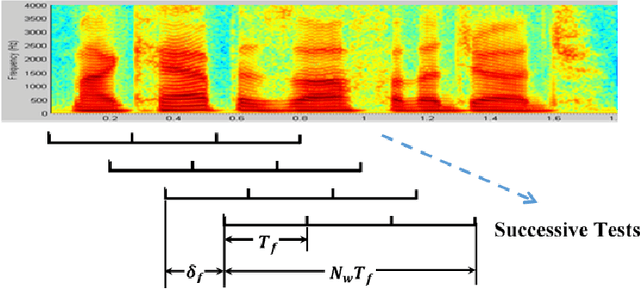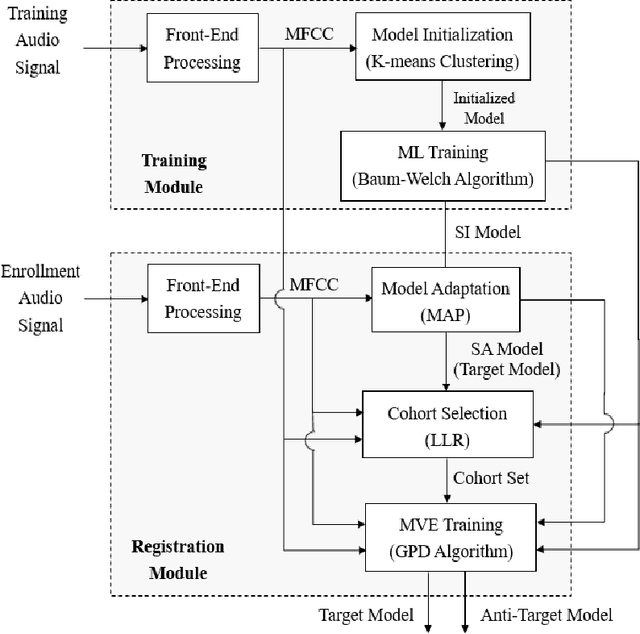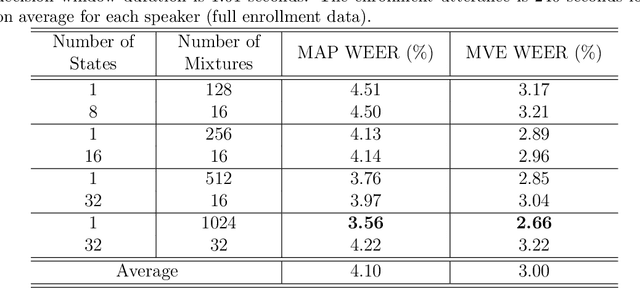M Umair Bin Altaf
Fred
Active Voice Authentication
Apr 25, 2020



Abstract:Active authentication refers to a new mode of identity verification in which biometric indicators are continuously tested to provide real-time or near real-time monitoring of an authorized access to a service or use of a device. This is in contrast to the conventional authentication systems where a single test in form of a verification token such as a password is performed. In active voice authentication (AVA), voice is the biometric modality. This paper describes an ensemble of techniques that make reliable speaker verification possible using unconventionally short voice test signals. These techniques include model adaptation and minimum verification error (MVE) training that are tailored for the extremely short training and testing requirements. A database of 25 speakers is recorded for developing this system. In our off-line evaluation on this dataset, the system achieves an average windowed-based equal error rates of 3-4% depending on the model configuration, which is remarkable considering that only 1 second of voice data is used to make every single authentication decision. On the NIST SRE 2001 Dataset, the system provides a 3.88% absolute gain over i-vector when the duration of test segment is 1 second. A real-time demonstration system has been implemented on Microsoft Surface Pro.
* 39 pages, 4 figures
 Add to Chrome
Add to Chrome Add to Firefox
Add to Firefox Add to Edge
Add to Edge